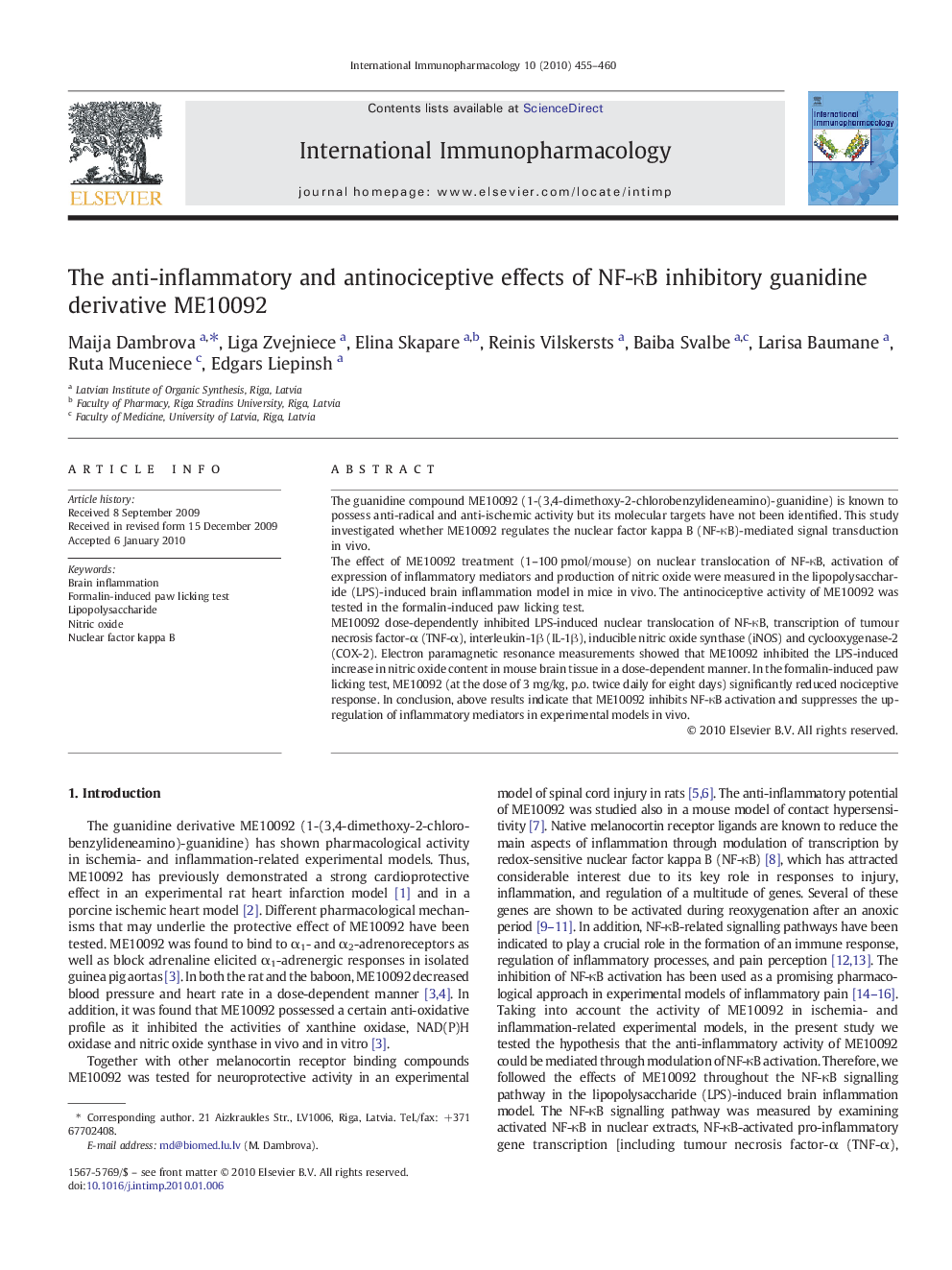| Article ID | Journal | Published Year | Pages | File Type |
|---|---|---|---|---|
| 2541841 | International Immunopharmacology | 2010 | 6 Pages |
The guanidine compound ME10092 (1-(3,4-dimethoxy-2-chlorobenzylideneamino)-guanidine) is known to possess anti-radical and anti-ischemic activity but its molecular targets have not been identified. This study investigated whether ME10092 regulates the nuclear factor kappa B (NF-κB)-mediated signal transduction in vivo.The effect of ME10092 treatment (1–100 pmol/mouse) on nuclear translocation of NF-κB, activation of expression of inflammatory mediators and production of nitric oxide were measured in the lipopolysaccharide (LPS)-induced brain inflammation model in mice in vivo. The antinociceptive activity of ME10092 was tested in the formalin-induced paw licking test.ME10092 dose-dependently inhibited LPS-induced nuclear translocation of NF-κB, transcription of tumour necrosis factor-α (TNF-α), interleukin-1β (IL-1β), inducible nitric oxide synthase (iNOS) and cyclooxygenase-2 (COX-2). Electron paramagnetic resonance measurements showed that ME10092 inhibited the LPS-induced increase in nitric oxide content in mouse brain tissue in a dose-dependent manner. In the formalin-induced paw licking test, ME10092 (at the dose of 3 mg/kg, p.o. twice daily for eight days) significantly reduced nociceptive response. In conclusion, above results indicate that ME10092 inhibits NF-κB activation and suppresses the up-regulation of inflammatory mediators in experimental models in vivo.
